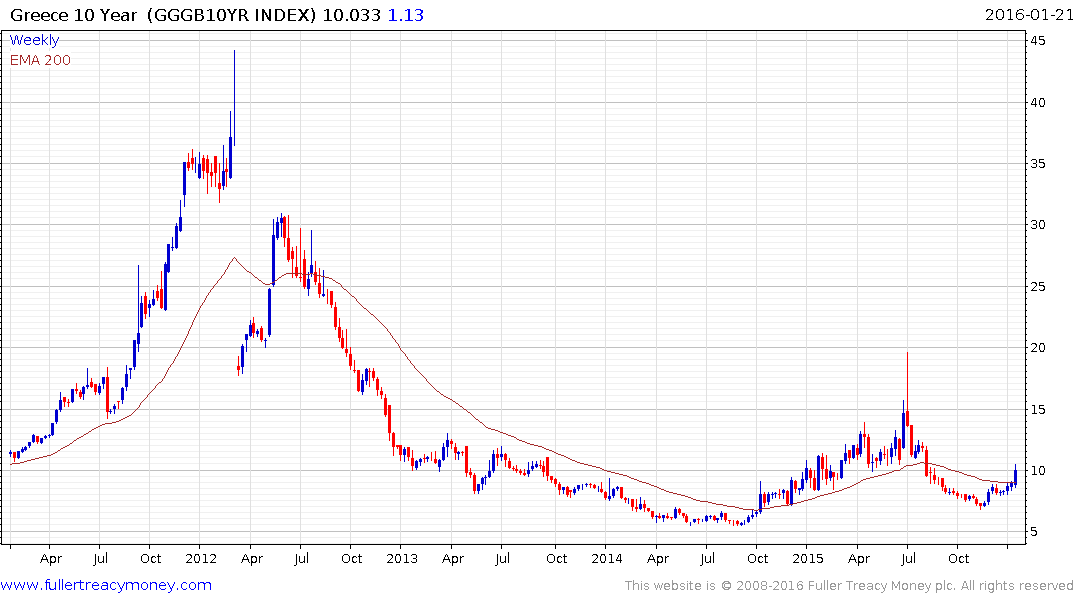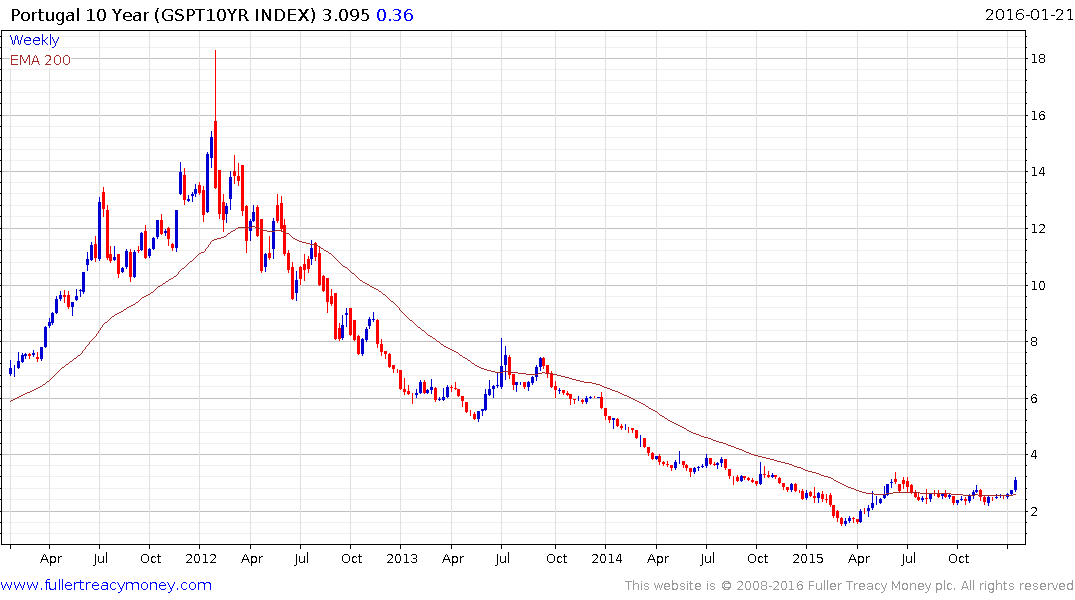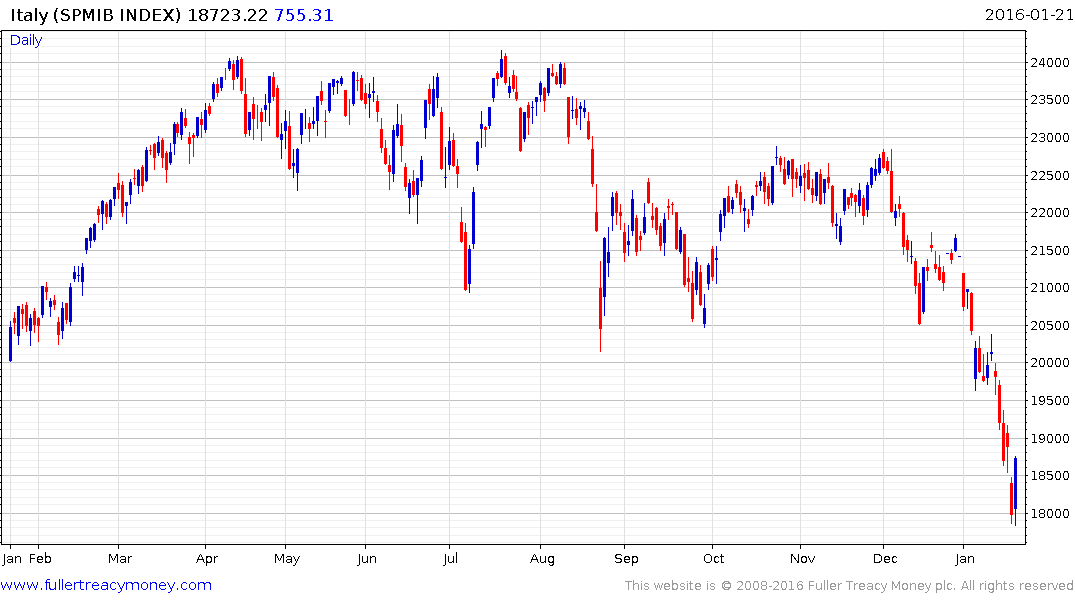Even the ECB's Cash Can't Stop Investors Worrying About Portugal
This article by Joao Lima for Bloomberg may be of interest to subscribers. Here is a section:
Central to the concern over Portugal is whether the government is shifting tack as it prepares to temper the austerity measures that won favor with investors, if not voters.
Prime Minister Antonio Costa’s government, sworn in at the end of November, is due to deliver a draft of its 2016 budget to European authorities this week. Plans include reversing state salary cuts and bolstering family incomes, policies he needs to ensure the support from the Communists and Left Bloc to have a majority in parliament.
The government already increased the minimum wage and plans to reinstate four holidays and reduce the working week for state workers to 35 hours, abandoning some measures introduced during Portugal’s three-year international bailout program that ended in 2014. It also plans to regain control of airline TAP SGPS SA.
Portugal still attracted foreign investors to a sale of 4 billion euros ($4.4 billion) of 10-year government bonds via banks last week. Finance Minister Mario Centeno said maintaining confidence in the country is crucial and it would be reflected in the budget. Bond yields peaked at 18 percent during the debt crisis.
Costa, 54, says he can still keep the budget deficit within the European Union limit of 3 percent of gross domestic product through 2019 as the country tries to deal with its 223 billion- euro debt pile.
The ECB has been circumspect about adding new liquidity because the speed of the Euro’s decline was doing their job for them. However with the stability of the Euro, and particularly with sentiment doubting whether the Fed will be able to raise rates four times this year, the need for ECB to take responsibility for its own policy has increased again.
The fact the ECB is a supra-government entity that has to occasionally bring recalcitrant national governments to heel puts it in an unenviable position. This is likely to remain a persistent issue because electorates in the most heavily indebted countries exhibit a tendency to vote for parties that promise an end to fiscal constraints imposed by creditors. Mr Tsipras’ experience in Greece offers a template for the kind of pressure likely to be brought to bear on Portuguese or indeed Spanish governments if they fail to meet the programs set out for them as part of their bailouts.

Greek 10-year yields are unlikely to move below 6% considering the continued stress the country is under with debt repayments acting as a secular headwind to the domestic economy.

Portuguese yields are unlikely to move below 2% and represent a constructive chart pattern so there is plenty of scope for medium-term yield expansion.
Italian and Spanish yields are relatively stable compared to Bunds suggesting stress is most evident in smaller peripheral Mediterranean states. The broad question remains what will happen if electorates in a major Eurozone country elect a populist majority government with a mandate to renege on sovereign debts, remove support for the creditors of failed financial institutions, or to leave the Euro and default on Euro debt in the process. There is no sign of any of these outcomes right now and that suggests the Euro project will continue to muddle through, but they remain outstanding risk premia attached to the market with the potential to stoke volatility.

With the ECB restating its commitment to monetary stimulus, the majority of European stock markets bounced. The Italian Index had been among the weakest but posted a large upside key day reversal today from the 18,000 level. Follow through tomorrow would confirm a low of at least near-term significance and increase scope for a reversionary rally back up towards the 200-day MA.


